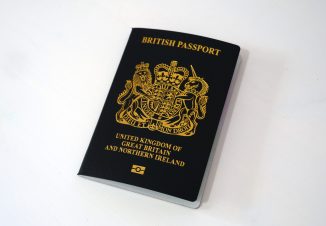
Despite the implementation period for IORP II running largely in parallel to the UK’s Brexit negotiations, the UK remains under an obligation to introduce its provisions into national law.
The first IORP Directive was implemented in the UK through the Pensions Act 2004. The new requirements at that time included a statutory funding objective (to deal with the directive’s technical provisions) and enhanced supervisory powers for a new pensions regulator from 6 April 2005.
Some of IORP II’s new governance provisions are already catered for in existing UK legislation, for example, the requirement for schemes to make available their annual report and accounts. Other provisions require legislative changes and, to this end, regulations have been introduced in the UK to deal with the cross-border authorisation framework and scheme governance.
In the UK, pension scheme trustees have been required since April 2005 to have ‘knowledge and understanding of the law relating to pensions and trusts’, the principles relating to funding and investment, and to be conversant with their scheme’s documentation and policies. These provisions address the ‘fit and proper” requirements of the directive to some extent. Work currently being carried out by the UK pensions regulator under its ‘21st Century Trusteeship’ programme (to raise the standards of governance across all pension schemes) will also help to address the new, higher standards.
Good governance for pension schemes has therefore been a key focus for the both the UK Government and UK pensions regulator in recent years. As such, UK pension schemes will generally not need to make drastic changes to their systems. However, new governance regulations define at a high level the scope of scheme activities and processes that an ‘effective system of governance’ must comprise, and what the ORA must cover. Further detail is due to be provided by the UK pensions regulator in revised codes of practice (awaited at the time of writing). The codes are expected to explain how trustees go about evaluating the adequacy and effectiveness of a scheme’s internal control system. These checks are intended to be proportionate depending on the size and type of scheme, but the UK will not require internal audits to be carried out by a qualified auditor.
The UK pensions regulator’s revised code of practice on internal controls will also address how trustees’ systems of governance should consider ESG factors and assess new or emerging risks (including climate change).
Work is also underway on ‘Pensions Dashboards’, which are being designed to enable individuals to view details of all their pensions together. Described by the UK’s pensions trade body, the Pensions and Lifetime Savings Association, as ’one of the most ambitious engagement projects that the pensions industry has undertaken’, it is envisaged that the dashboards will help meet some of the new disclosure requirements. However, the Dashboard project is still at a relatively early stage, with much of the detail (and a launch date) still to be confirmed.
The future for cross-border pensions post-Brexit
Subject to any transitional terms that are agreed, the EU rules for IORPs will no longer apply to the UK when it becomes a ‘third country’. The EU Commission published a ‘Notice to Stakeholders’ in April 2018, outlining some of the possible consequences of Brexit for IORPs that operate cross-border.
In this statement, the Commission makes it clear that, as well as the EU and national authorities, IORP trustees or managers (and their sponsors) need to start thinking now about any changes which may be needed to their rules, to deal with Britain leaving the EU.
The stakeholder notice focuses on a number of elements, including:
Once the UK has left the EU, members and beneficiaries whose relationship with an EU-based IORP is governed by UK pensions law will no longer be subject to the IORP II framework, even if the IORP is registered or authorised in an EU member state. Whether, and if so how, such an IORP can provide for UK-based members will depend on the relevant law of the member state where the IORP is based.


